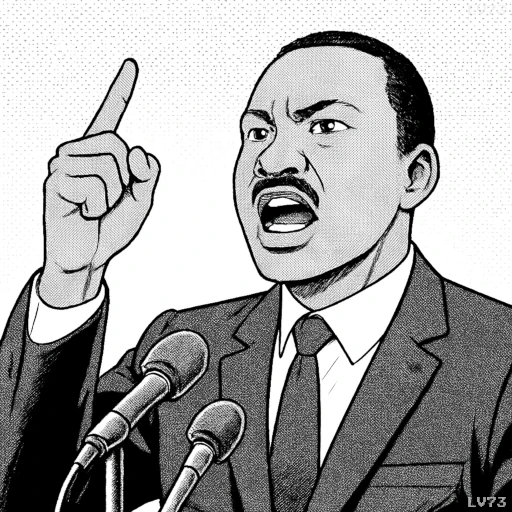“Violence as a way of achieving racial justice is both impractical and immoral. I am not unmindful of the fact that violence often brings about momentary results. Nations have frequently won their independence in battle. But in spite of temporary victories, violence never brings permanent peace.”

- January 15, 1929 – April 4, 1968
- African American
- Pastor and civil rights leader
table of contents
Quote
“Violence as a way of achieving racial justice is both impractical and immoral. I am not unmindful of the fact that violence often brings about momentary results. Nations have frequently won their independence in battle. But in spite of temporary victories, violence never brings permanent peace.”
Explanation
In this quote, King argues that violence is an ineffective and unethical means for achieving lasting justice. While he acknowledges that violence can yield quick, tangible results and that some nations have gained independence through force, he warns that these “temporary victories” fail to create a foundation for true and lasting peace. King’s message is that although violence may seem to offer a path to freedom or justice, it ultimately perpetuates cycles of conflict and leaves lasting wounds that prevent reconciliation and unity.
King’s belief in nonviolence as the only path to enduring justice was central to his philosophy. Throughout the Civil Rights Movement, he advocated for peaceful protest and civil disobedience, even in the face of violent opposition, because he saw that nonviolence upheld both moral integrity and practical effectiveness. For King, the use of violence would compromise the ethical foundations of the struggle for racial justice and lead to further division, while nonviolence offered a way to achieve justice without sacrificing compassion and respect.
Today, King’s message continues to inspire those seeking justice and equality through peaceful means. His words remind us that true and lasting change requires approaches that unite rather than divide and that the path to peace must reflect the peace we seek to achieve. King’s insight encourages us to consider the consequences of our actions, choosing methods that foster understanding and healing over those that inflict harm. By rejecting violence in favor of nonviolent resistance, we can work toward a future where justice and harmony are possible without the burdens of hostility and resentment.
Would you like to share your impressions or related stories about this quote in the comments section?




